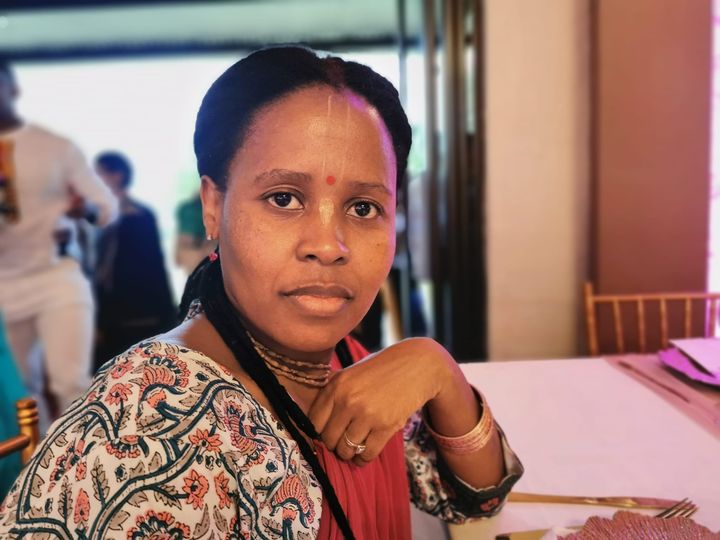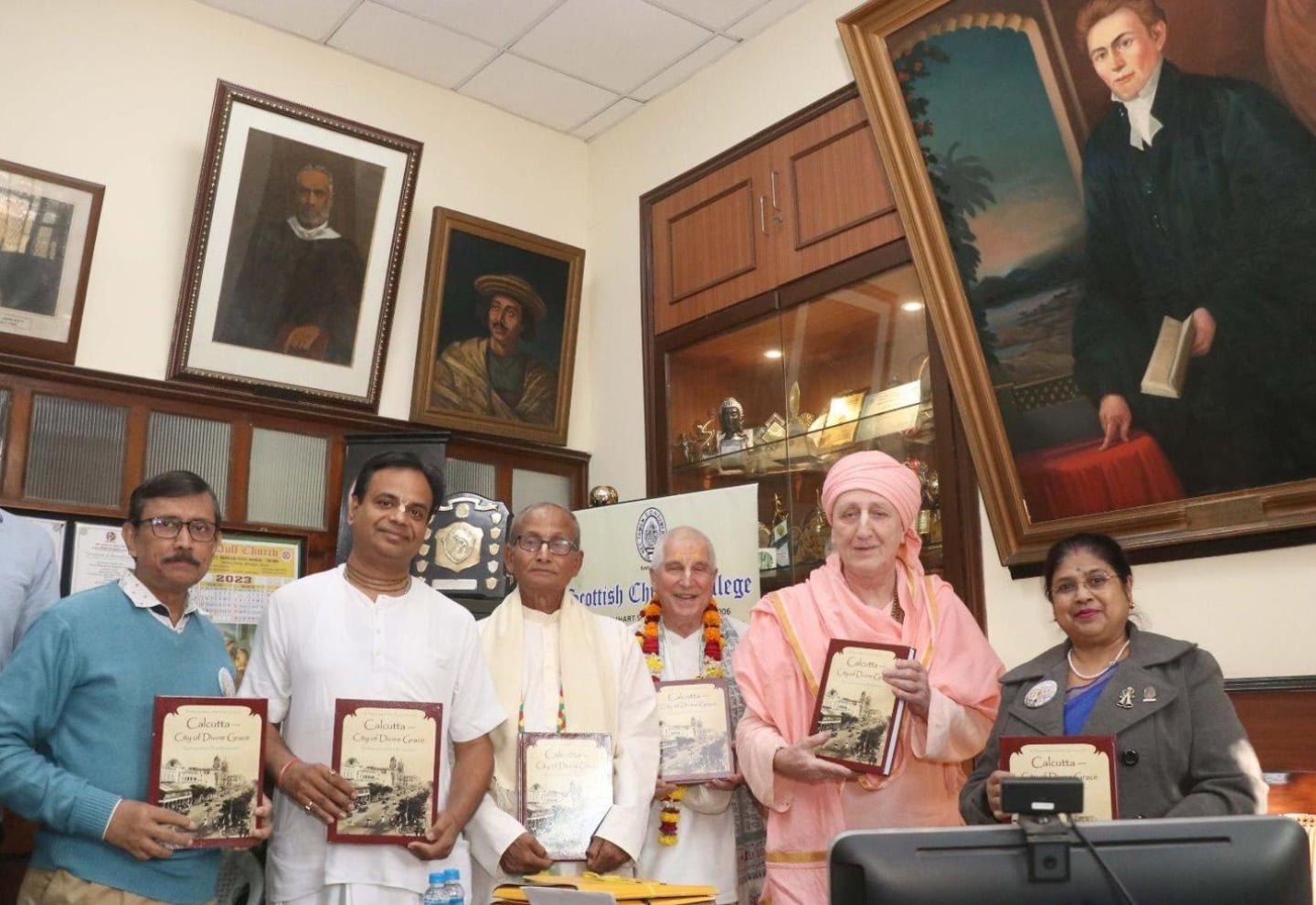Vaisesika Das on Staying Safe and Sane During A Pandemic
By Madhava Smullen | Apr 08, 2020

With most ISKCON temples around the world now closed except to residents due to the COVID-19 pandemic, and most devotees staying at home under “shelter-in-place” orders, day-to-day life can be a challenge.
In these times, it can be good to hear from a well-wisher who is grounded in both real-world smarts and spiritual understanding. We spoke to Vaisesika Das, Prabhupada disciple, temple president at ISKCON Silicon Valley in California and longtime inspirational leader, and asked him to provide some practical advice and uplifting words on how to stay safe and sane during a pandemic.
Take COVID-19 Seriously and Follow Precautions
“I don’t think that as a whole, from what I’ve heard, we ISKCON leaders are taking this seriously enough,” Vaisesika says. “I think we should set a good example by simply following what the scientists are telling us about the Coronavirus, and what we should do about it. We shouldn’t speculate, put forward conspiracy theories, do things halfway or say it’s not a big deal.”
“I think that’s dangerous not only because it could help to spread the virus in our communities and all over the world,” he adds. “But also because it’s a bad image for us, showing that we didn’t really care, or that we didn’t put the most into it that we could have.”
Use Five Tips For Working and Living at Home
Vaisesika’s five tips for working and living at home with the whole family during the pandemic are:
1) Get yourself a “Do Not Disturb” sign. “If you need time to yourself now and then, you should have it.”
2) Start your day right with a strong morning routine. Vaisesika advocates writing down an affirmation or goals for the day, chanting a set number of rounds, and reading a set number of pages from Prabhupada’s books. “Don’t hang out in your pajamas all day,” he says. “Be regulated.”
3) Set ground rules for the people in your space. “Have a discussion, and make time for everyone to talk about the things they need in order to remain steady and sane.”
4) If you’re working at home, schedule breaks. “Interestingly, although we’re all at home, I find that people are working twice as hard as they were before the pandemic,” says Vaisesika. “Often they used to get relief while commuting. But now that everyone’s home, they’re practically barraged 24 hours a day – ‘Hey, you’re home, you might as well get on the phone with me.’ So schedule your own breaks during the day, and follow them completely.”
5) Dedicate some space in your house for the place where you work, and the place where you do your spiritual practice. “Then set it up so it’s clearly demarcated, and everything doesn’t all merge together.”
Stay in the Moment
“It really helps to see each day as a self-contained unit,” says Vaisesika. “Stay in the moment, and stay in the day.”
He adds: “For instance, this morning I woke up and I read my 41 pages of Bhagavatam. There were a lot of other things I could have done, urgent emails I could have read. But instead I said, “I’m counting my pages, and I’m not gonna budge from that. And as soon as I started reading, I started to feel relief.”
Find Your Community
While we have to physically isolate, it’s important not to be emotionally isolated, and to find association with other devotees.
“Try to connect with the outside world through the Internet,” Vaisesika says. “I have noticed that more than ever before, devotees everywhere are broadcasting out, because they have a need to connect with others. So find your community online, participate and feel part of it.”
Channel Your Anxiety into Practical Steps
It can be hard not to get swept up in the environment of fear created by the COVID-19 pandemic. But, Vaisesika says, “There’s anxiety, and then there’s panic. Panic means you’ve reached the level of irrationality. You start doing stuff you don’t have to do, wasting money, time and energy, and getting yourself into more trouble than you were in before.”
Anxiety, however, can be channeled into practical steps. “Make a list of the things you absolutely know you have to do, and then take care of them,” Vaisesika advises. “For instance, if you need to take care of your finances, get online and shore ‘em up. Do whatever you have to do. Don’t be constantly worrying about it. Just do the practical things and leave the rest to Krishna, knowing that you did your part, and the now the world’s going to move in its own way.”
Don’t Chase the News
To reduce anxiety and increase peace of mind, “Wait for the news, don’t attack it,” Vaisesika says. “Don’t check in every ten minutes – it’s not that vital for you. You know what you have to do — stay home, wash your hands, and don’t touch your face! That’s within your zone that you can do something about. Don’t stay constantly on the 24-hour news cycle, because it’s moving too fast for our brains to process.”
He clarifies: “Of course, it’s not that we should avoid news altogether, especially during this time when vital information may be important. Rather, one can aid one’s peace of mind by lengthening the intervals between one’s consumption of such news. There is no need to constantly chase it.”
Ask the Right Questions
“In my corporate seminars, I teach that there are two questions you can ask in difficult situations,” Vaisesika says. “One is ‘Why me?’ That question leads you down into the darkest regions of anxiety, and it keeps you there. So that’s the wrong question to ask.”
“The right question is, ‘What is the lesson in this?’ And if you keep asking that question, “What is the lesson, what is the lesson, what is the lesson?” no matter how things are changing in your life, it will give you a higher perspective immediately.”
“This is how a devotee sees things, according to Lord Brahma in the famous Srimad-Bhagavatam verse 10.14.8, tat te ’nukampāṁ su-samīkṣamāṇo. That whatever’s happening to me, even if it appears to be inconvenient, there’s a lesson in it for me, and it’s coming from a benevolent Source who’s trying to teach me something.”
Step Back and Look at The Situation From A Higher Level of Vision
While COVID-19 and the struggles and tragedies it yields are very real, sometimes it can help to look at things from a more cosmic, philosophical level of vision.
“The whole material nature is always being destroyed, and it’s always changing,” says Vaisesika. “So rather than getting attached and trying to hold on, just observe that it’s changing, and think, ‘Isn’t this interesting?’”
“Within the lifetime of any living entity, there’s going to be some changes. And our lifetime, according to Brahma, is over in a couple minutes. So it’s not that significant.”
What’s more, Vaisesika says, “Nobody – even in the Coronavirus pandemic – is really, truly dying. Because we don’t die – we actually just change bodies. According to Vedic sastra, everything’s happening according to an exact plan. Karma is perfect, and Krishna, who designed it, is perfectly benevolent.”
“So whatever’s happening, is happening for a reason. In one sense, nobody’s actually dying – we’re only moving from one circumstance to another. So from a much higher perspective, we can see that this is just the churning of the material nature. And we need not become overly upset about it.”
This Too Shall Pass
From yet another perspective, Vaisesika says, “This too shall pass.”
“Everything blows through,” he concludes. “And looking back on it, everyone’s going to see that this was a very pivotal time in history, when, at least for the people who took advantage of it, we were able to get a new lease on life.”












